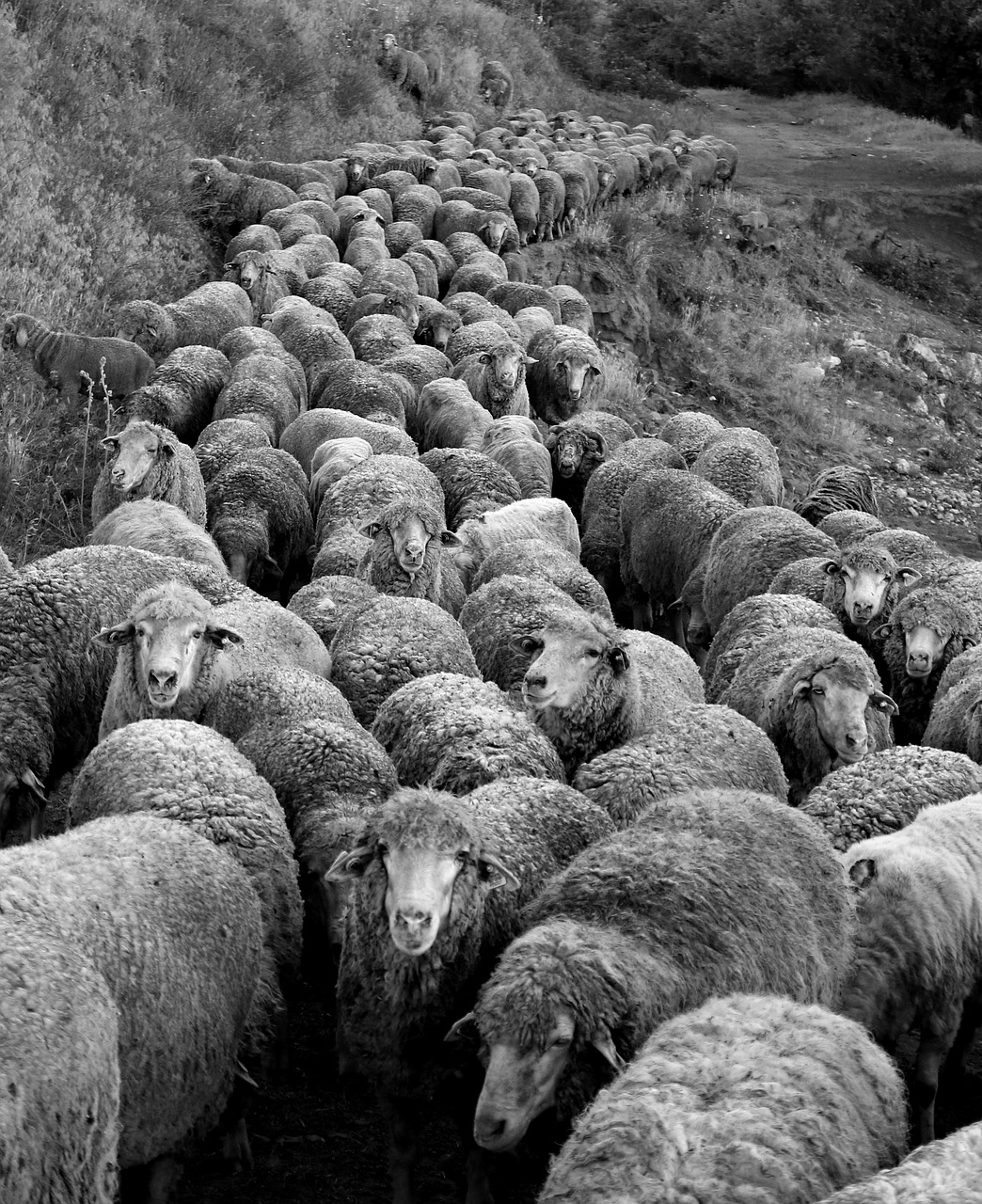
Or, how to 'ewes' sheep.
It is to their enduring undying endearment that sheep selflessly offer themselves for the good of humankind
Let me state immediately for ovine readers that I see the offensiveness of this heading. It is, however, what humans think and this article was written, after all, for them.
Additional to companionship and a disproportionately large contribution to human culture, these follicled fellows provide bodily resources to fuel the economies of pre and post-industrial nations.
Isabella Beeton, in her immortal compendium of how women ought occupy themselves awaiting childbirth, praises not too highly the worth of ovines:
This animal formed the principal riches of the patriarchs, in the days of
old.
As a domestic animal, it depends almost entirely upon man for its support. Its
value, however, amply repays him for whatever care and kindness he may bestow
upon it.
There is scarcely a part of it that we cannot convert to some useful purpose.
The fleece, which serves it for a covering, is appropriated by man, to serve
the same end to himself, whilst its skin is also applied to various purposes
in civilized life. Its entrails are used as strings for musical instruments,
and its bones are calcined, and employed as tests in the trade of the refiner.
Its milk, being thicker than that of the cow, yields a greater quantity of
butter and cheese, and its flesh is among the most wholesome and nutritive
that can be eaten.
Meat, milk, cheese, lanolin, leather and fleece - purrfek! (Long-haired goats are mere clowns in sheep's clothing)
On the farm, breeders aim for superior wool (fineness of fibers, staple length, degree of crimp) and quantity of wool, while in meat breeders pursue fast growth, lambing ease, and hardiness.
In the culinary world, chefs commonly call sheep meat lamb or mutton. French for "sheep" is mouton, and for raw meat mouton rouge :-)
Cheese and yogurt are the most common products made from sheep milk, which uniquely contains up to 25% MCT total fat. These triglycerides provide energy without laying down fat in the body. This property makes sheep milk products beneficial for many health conditions (in humans) including coronary bypass, premature infant feeding, childhood epilepsy, cystic fibrosis, and general consumption.
Milk-based soap is more moisturizing as the milk and cream do not separate, and the natural alpha-hydroxy acids found in milk have a rejuvenating and softening effect on the skin.
And nothing compares with the fragrance of lanolin (dung variants available).
Sheep leather has unique, enduring qualities:
Waarom schapenleer? Schapenleer is een unieke meubelbekleding want geen enkele bekleding heeft de eerlijke, warme, natuurlijke en persoonlijke uitstraling als juist dit leer. Het stofferen met schapenleer is een vak apart wat onze stoffeerders allemaal uitstekend beheersen. *
Sheep leather has a beautiful soft and luxurious feel, though it isn't durable or able to withstand sprigging and tearing, and needs careful treatment to make it waterproof.
Sheepskin boots are made from shearling sheepskin, the most supple lambskin, hand picked for the softest and plushest wool. And they are most certainly ugg-ly. Pictured at right, Jake-the-Peg version manufactured from three-legged sheep.
Of all the wild or domesticated animals, the sheep is, without exception, the most useful to man as a food, and the most necessary to his health and comfort.
It not only supplies him with the lightest and most nutritious of meats, but, in the absence of the cow, its udder yields him milk, cream, and a sound though inferior cheese, while from its fat he obtains light, and from its fleece broadcloth, kerseymere, blankets, gloves, and hose.
Its bones when burnt make an animal charcoal (ivory black) to polish his boots, and when powdered, a manure for the cultivation of his wheat. The skin, either split or whole, is made into a mat for his carriage, a housing for his horse, or a lining for his hat, and many other useful purposes besides, being extensively employed in the manufacture of parchment.
Finally, and to the ultimate and terminal chagrin of all other species wallowing in the agonized futility of their very existence, when oppressed by care and sorrow humankind rejoices in the harmonious strains that carry such soothing contentment to the heart - elicited from the musical strings prepared almost exclusively from the intestines of the sheep.